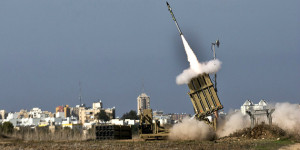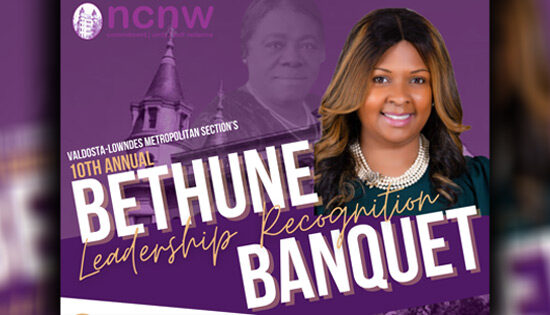
EDITORIAL—In Islam, the “People of the Book” is a term used to denote non-Muslim adherents to religious traditions with a book of prayer central to their faith. Typically, this blanket term includes both Judaism and Christianity. Christianity, Islam, and Judaism—or the Peoples of the Book—are all grounded in the same origins. The three major faith systems are derived of the Abrahamic line. As such, they are denoted as Abrahamic religious traditions.
Abraham is often seen as the founder of the first monotheistic faith (or sometimes simply, the first monotheist, though an argument can be posited that this is the function of Adam, and not necessarily Abraham). In Genesis (found both in the Christian Old Testament and the Jewish Tanakh), Abraham is sent from Ur, his native home in Assyria, by God to settle a new land for His people. There, Abraham makes a covenant with God, that if he go forth to settle the land, on that land will be born a great people—the people of Israel (Gen. 12:1-3). In turn, Yahweh, the name given by God to His people, promises Abraham land, descendants, blessing, and redemption.
Abraham and his wife Sarah had trouble conceiving children. Because of their inability to successfully conceive, Abraham fathers a child with one of his slaves: Hagar. However, Sarah eventually produces an heir for Abraham (then at the age of ninety-nine) in Isaac. Due to the illegitimate son of Abraham and Hagar, Ishmael, causing potential concerns with regards to the right of succession, Abraham casts both Hagar and Ishmael from his home and banishes them to the desert. Effectively, sending them to an almost certain death (Gen. 21: 1-21). From Isaac comes the lineage of the Israelites and from Ishmael the hereditary line of Muslims to Abraham.
Christians can also trace the lineage of Jesus to Isaac by way of David (Matt. 1:1-17; Luke 3:23-38). Congruently in Islam, Muslims believe that God’s final messenger and prophet, Muhammad, is a descendant of Ishmael. The intimate and nascent foundations that all Jews, Christians, and Muslims share is particularly important when juxtaposed beside the terrible violence currently ongoing between Israelis and Palestinians in Gaza.
The death toll has been much more pronounced in the south, in Gaza. As of August 5, there have been 1,592 Palestinian and 66 Israeli deaths in the wake of over twenty days of hostilities between Israel and Hamas, following an Israeli offensive to suppress Hamas rockets and mortars being fired into Israel. The lopsided fatalities in the current Israeli-Palestinian clash are due in large to the Israeli-U.S. “Iron Dome” air defense ring. Employing high-tech radar guided missile technology, Israeli Defense Forces have been able to neutralize incoming Hamas missiles, mid-air, preventing shells from touching-down in major urban centers.
Despite United Nations Security Council calls for an “immediate and unconditional humanitarian ceasefire,” Hamas continued to shell Israeli territory, prompting Israeli Defense Forces to resume combat operations in Gaza and neutralize Hamas-built tunnel networks. The crisis has been further exacerbated by reports that Israeli tanks shelled a UN school, killing 16 and leaving over 200 Palestinians injured. The school was being used as a shelter for Palestinians seeking relief from the shelling. Chris Gunness, a UN spokesman, asserted that the exact coordinates of the school in Beit Hanoun had been given to Israeli Defense Forces and the shelling is being disputed by both Israel and Hamas, each side claims the other is responsible for the brutality.
The issues facing both sides are compounding. Israel does have a right to defend itself. Further, if there’s to be peace in the region, Hamas must be willing to implement a ceasefire. For when a fragile peace is seemingly within reach, Hamas has failed to stop shelling Israel—causing yet another round of senseless violence. There is no easy answer to the cessation of violence in Gaza. There have been claims that Hamas is using civilians as human shields. At this point in the conflict, and by its very nature as a largely urban clash, this may be hard to prove in the heat of battle. Further, with Israel’s high-tech military and weapons systems, and as civilian casualties continue to mount, Israel could lose its “moral authority” by “overdoing it” said former Secretary of State Madeleine Albright. President Obama has also called on Israel to take further steps to limit needless civilian casualties.
On Thursday, former Florida Republican Congressman turned news anchor and pundit, Joe Scarborough, noted that Israel’s “continued killing of women and children [in Gaza] in a way that appears to be indiscriminate is asinine.” Scarborough is right. Israel, a robust democratic state, should be held to a higher standard than Hamas—a group labeled a terrorist organization, by many observers. Israel, with its advanced military technology should be able to more effectively pinpoint its military strikes to minimize civilian casualties. Since the conclusion of the Second World War, the international norm has been, and rightfully so, that governments should take every possible measure to ensure civilians, both friend and foe, are not caught in the crossfire. To that end, Israel has equivocated on its obligation. Still, both Israel and many observers will point to claims that Hamas is employing human shields to protect military assets, in hopes that Israel will not choose to liquidate the target. This contention is being vigorously litigated in the court of public opinion, with many reputable observers disagreeing with Israel’s assessment.
Nevertheless, as noted previously, Israel should be held to a higher standard than Hamas. If a state, such as Israel, is to lose its moral authority, it can be done no faster than by killing scores of non-combatants. More philosophically, this type of protracted conflict runs contra to the ubiquitous and overarching socio-cultural and political norms of the age. A global political orientation emphasizing cooperation, cross-cultural dialogue, and, above all: stability. In 1992, American economist, political scientist, and diplomatic scholar, Francis Fukuyama, published his seminal work entitled The End of History and the Last Man. To Fukuyama, we reside at the end of history. Human progress and development has reached its apex, leading to stable liberal democracies, particularly in the Global North, and a final type of human government; a system marked by economic development with strong state sovereignty and borders—not war and conflict.
State conflict and aggression, whether it is in Israel, Ukraine, or the like: runs against the grain of over a century of political and cultural development. It strikes most observers as a relic, a holdover from a bygone age. In fact, the international condemnation against conflict has been well codified since early in the previous century. In 1928, the Kellogg-Briand Pact outlawed offensive war (of which the United States is a signatory). Of course, this would not stop the rise of fascism and militarism in the 1930s, paving the way to the Second World War—nevertheless, the intent of the signatories is still poignant: to end military aggression across the globe.
Hamas is a terrorist organization, or non-state actors who employ violence in hopes to achieve political ends. Israel should be committed to suppressing those who continue to perpetuate violence and minimize civilian casualties. With recent reports of a second Israeli bombing of a UN school, Israel is poised to lose support among Western democracies and observers if it, seemingly, carelessly continues to shell civilians seeking refuge at institutions funded by international NGOs. Regardless of Israel’s reasoning for the UN school bombings, the innocent human suffering and carnage seems hard to justify. On Sunday’s Meet the Press, Aaron David Miller of the Woodrow Wilson International Center for Scholars rightly noted “that no set of talking points, however compelling they are from Israel’s point of view, can somehow stand up and match up to those pictures [of civilian casualties]. Which is why most of the international community is reacting quite negatively to say the least, to what’s going on in Gaza.”
The point is that neither Israel nor Hamas is completely innocent. For war is hell. When Israel strikes a UN school, they’re in the wrong—that much is not in dispute. When Hamas uses human shields to protect military assets, they are in the wrong—no one contends otherwise. It’s not out-of-bounds to question Israel’s role in the fighting. Israel and its people are not infallible, no nation or people on this planet are. We must stand with our strongest ally in the region, but not be blind and ignorant to the wrongs perpetuated under the Star of David.
Admittedly, Israel is at a bit of a disadvantage in the court of public opinion. Fighting off a band of insurgent guerilla fighters can be difficult for any nation. Conventional armies are held to a higher standard than the run-of-the-mill terrorist cell, particularly those armies of democratic states. But Israel should take every precaution to minimize the loss of civilian life. If Hamas continues to employ cowardice using its people as human shields against air targets, then Israel must find a new strategy. Israel must not stoop to the level of a bully or abscond to the role of an occupier and conqueror. They must be tough, but they must play by the rules. They must seek to win the greater war of public opinion and not merely the military battle of the day.
In the conflict between Israel and Hamas, we are left with a precarious stalemate. An incessant conflict between two peoples, sharing an interwoven heritage in the land of Canaan—in the land of God. A conflict marked with senseless violence between brothers, the progeny of Isaac and Ishmael. These peoples: Christians, Jews, and Muslims should gravitate towards peace, for it is central to the texts inherent to each tradition (respectively, see Matt. 5:9; 1 Kings 5:12; Qur’an 59:24). What lingers is the reminder that violence has been characteristic to man since the dawn of the world, since the beginning of time. All three Abrahamic religious traditions accept the allegory of the sons of Adam and are central to their respective scriptures.
We must remember that the first act of bloodshed was when Cain slew Abel—his own brother. Violence among men is among the few things older than the Abrahamic line, for this may be why it is such a pervasive force in the region. In the Qur’an, murder and killing are seen not as a singular event, but an affront to the entire human family. One cannot look upon the senseless conflict in Gaza and see what clearly is affront to humanity; to the tenant’s central to the Abrahamic faiths. For this we should yearn for a ceasefire and lasting peace among the sons and daughters of Abraham; Christians, Jews, and Muslims alike.











